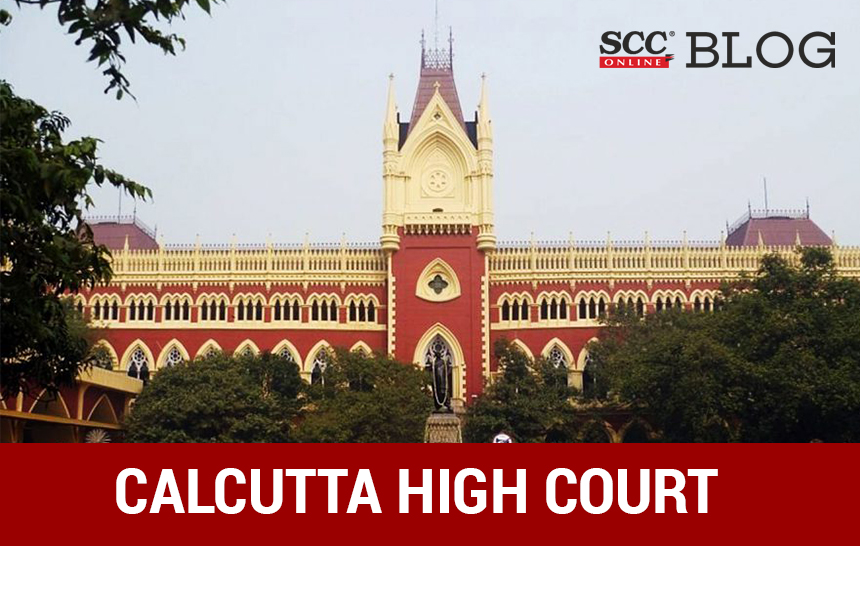Calcutta High Court | While upholding the Appellate Authority of Advance Ruling’s order stating that classification of polypropylene bags cannot be changed just to avail a lower tariff rate, Md. Nizamuddin*, J., held the petitioner’s product Polypropylene (PP) Leno Bags is made from Plastic Granules and therefore cannot be treated as Textile Articles.
Factual Matrix
The Petitioner, Mega Flex Plastics Limited is a manufacturer of Polypropylene Leno Bags by weaving polypropylene strips (tapes) and its major raw material is plastic granules. Before the introduction of the GST regime, the petitioner declared its product under Chapter 3923-29-90 of Central Excise Tariff Act, 1985 and took benefit in the form of Duty Drawback. The petitioner applied for altering the classification of the same product i.e. PP Leno Bags (hereinafter referred to as “the product”) to 63053300 without changing the composition and process of manufacturing. Petitioner has not cited any reason to the department for such alteration of Tariff Heading, that too for domestic market only.
Authority for Advance Ruling (AAR) vide order dated 06-07-2018, held that “the product being manufactured by the petitioner can be classified under Chapter Heading 63053300 of the said Tariff if the same is made from woven polypropylene fabric using strips not exceeding width of 5mm and without any impregnation, coating, covering or lamination with plastics.” Concerned CGST authority filed an appeal before the West Bengal Appellate Authority for Advance Ruling against the aforesaid order. AAAR vide order dated 25-10-2018 allowed the appeal and set aside the order dated 06-07-2018.
Petitioner’s Contention
The petitioner contended that the products manufactured by the petitioner are more in the nature of textile product and are specifically covered under Chapter Heading 6305 33 00 of the First Schedule to the Customs Tariff Act, 1975. The petitioner stated that even though the product is manufactured from plastics, since it is less than 5mm (about 0.2 in) in width it should be treated as textile product. The petitioner contended that the scientific entry in the schedule to a taxing statute overrides a general and residual entry. The petitioner also contended that the petitioner could change classification at any stage and no estoppels/res-judicata principle will apply for claiming correct classification.
Respondent’s Contention
The Respondent submitted that the product namely HDPE bags are woven by the plastic strips made from plastic granules, such strips fall under the Chapter Heading 3920 subheading 3920.32 of the Central Excise Tariff Act and thereof, the said products are the product of plastic and would fall into the heading 39.23. The respondents relied on RLJ Woven Sacks (P) Ltd., In re, 2019 SCC OnLine WB AAAR-GST 14 in which it was held that Polypropylene Leno Bags whether laminated with BOPP or not would be classifiable as plastic bags under HSN Code 3923 and 10 would attract 18% GST and the assessee cannot be allowed to change classification which it had pursued for last 9 years in view of the fact that it intended to avail lower tariff rate of GST.
Court’s Observation
The Court observed that the petitioners in the present case have not been able to demonstrate the basis on which they are seeking change of the classification of its finished product after the introduction of GST and the petitioner has no basis for the sudden change of classification of the same finished products for the purpose of Tariff Head.
The Court cleared the factual matrix by stating that to qualify under Chapter sub-heading 6305 33 00 the goods should have been made of “man-made textile material of polyethylene or polypropylene strip or the like” and for qualification under the Chapter sub-heading 3923 29 990 the goods i.e., Bags/sack should be made of plastics and articles thereof.
The Court observed that the product is not manufactured out of textile material but made of woven strips manufactured out of Polypropylene (i.e., made of plastics) as defined under Chapter sub-heading 3923 because of which the impugned goods are to be classified under Chapter heading 3923.
The Court refuted the ground of petitioner that the width of the polypropylene strips is less than 5mm and that the rate of duty on the very same product under the same heading after the introduction of GST Act is higher. Merely for availing the lower rate of Tariff, the petitioner cannot be allowed to change the classification of Tariff heading.
While dismissing the writ petition, the Court held that the product in question which is manufactured by the petitioner is made from plastic granules and hence cannot be treated as textile articles.
[Mega Flex Plastics Ltd. v. Union of India, 2023 SCC OnLine Cal 311, decided on 10-02-2023]
*Judgment by Justice Md. Nizamuddin.
Advocates who appeared in this case:
Mr. Vinay Kr. Shraff, Mr. Rahul Dhanuka, Mr. Pratik Samajpati, Ms. Priya Sarah Paul and Ms. Priyanka Sharma, Counsel for the Petitioners;
Mr. Uday Sankar Bhattacharya, Mr. Vipul Kundalia, Mr. Tapan Bhanja, Mr. Sujit Mitra, Ms. Aishwarya Rajyashree and Mr. Abhirup Maity, Counsel for the Respondents;
Mr. Anirban Ray (Ld. Govt. Pleader), Mr. Md. T.M. Siddiqui, Mr. Soumitro Mukherjee, Mr. Debasish Ghosh and Mr. Nilotpal Chatterjee, Counsel for the State;
Mr. Vipul Kundalia, Counsel for the Union of India.








Hello,
Thanks for sharing this amazing article with us.
The Calcutta High Court has dismissed a petition filed by a company seeking to change the classification of a product’s tariff heading to avail of a lower rate of tariff under the GST regime. The court held that the change in classification would amount to tax avoidance and upheld the original classification.